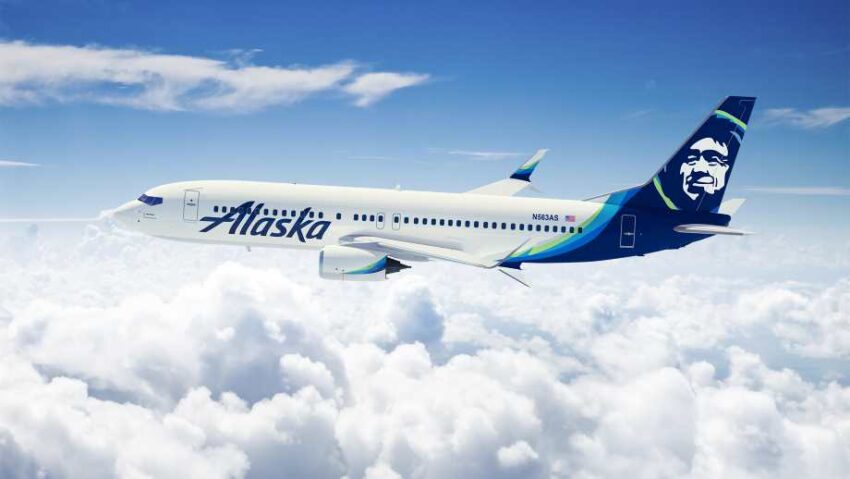Operational Setbacks for Alaska Air Group
Alaska Air Group, which oversees operations for Alaska Airlines and Horizon Air, is encountering operational challenges stemming from rising costs tied to recently imposed tariffs. These tariffs have not only led to the postponement of the delivery of two Embraer E175 regional jets but have also necessitated adjustments to their flight schedules, reflecting the broader financial implications facing the aviation sector as it grapples with evolving trade policies.
Delivery Delays and Impact on Fleet Expansion
Originally, the two Embraer jets were scheduled for delivery in May 2025, intended to enhance Horizon Air’s fleet that caters to various regional routes across the western United States and parts of Canada. However, a 10% import tariff on Brazilian-made products, which includes the aircraft, has required Alaska Air Group to delay the acquisition of these critical planes. This tariff is a part of a more extensive U.S. trade policy shift aimed at multiple countries, significantly inflating the costs of acquiring these essential resources.
Flight Cancellations and Rescheduling
Consequently, Horizon Air has announced the cancellation of roughly 14 flights each day through the end of July 2025. These reductions are concentrated on routes serviced by multiple flights daily, allowing the airline to efficiently consolidate operations and rebook customers on alternative services with minimal disruption. This strategic approach aims to uphold service quality while managing capacity limitations due to the delayed expansion of their fleet.
Broader Industry Implications
The deferred aircraft deliveries and subsequent flight cutbacks highlight the significant challenges airlines encounter when external economic influences disrupt their growth trajectories. Fleet expansion is crucial for airlines looking to meet surging demand and optimize their operational networks. A lack of timely access to new aircraft forces airlines to strike a balance between operational efficiency and customer expectations.
Trade Policy and Industry Dynamics
The tariffs affecting Embraer jets are part of a broader wave of trade measures enacted by the U.S. government in early April 2025. These measures impose additional duties on imports from a range of industries, including aviation equipment, complicating supply chain management for companies reliant on international sourcing. While some trade partners managed to negotiate exemptions or temporary relief, others continue to face full tariff rates, creating a strain on operations.
Advocacy for Policy Changes
Embraer, the Brazilian aerospace manufacturer, has actively lobbied for the repeal of tariffs on aviation products, pointing out that such levies impede supply chain efficiency and inflate costs for both airlines and manufacturers. Given that the global aerospace industry relies heavily on collaboration and cross-border trade, stable and predictable trade policies are essential for fostering continued growth and competitiveness.
Exemptions and Strategic Developments
In a parallel development, a recent trade agreement between the United States and the United Kingdom has exempted Rolls-Royce aircraft engines and associated aviation components from the 10% tariff. This exemption illustrates the importance of specialized considerations within broader trade policies, particularly regarding critical aerospace technologies.
The Future of Airline Operations
Alaska Air Group’s experience exemplifies the nuanced balancing act airlines must perform in a climate of economic uncertainty propelled by fluctuating trade dynamics. Tariffs can swiftly alter cost structures, compelling airlines to reassess capital investments, postpone fleet renewals, or limit flight options. These decisions inevitably ripple through passenger demand and operational activities.
Strategies in Response to Challenges
By deferring aircraft deliveries and carefully adjusting flight schedules, Alaska Air Group is navigating its exposure to these tariff-induced challenges while working to minimize passenger disruption. This flexibility will be vital moving forward as airlines face increasingly dynamic market and policy conditions.
Summary and Looking Ahead
In conclusion, ongoing cooperation between governments, manufacturers, and the aviation industry will be vital in cultivating stable trade environments conducive to growth, innovation, and global connectivity. For travelers and aviation stakeholders alike, staying informed about these developments is crucial.
Even with the best reviews and most genuine feedback, nothing compares to personal experience. On LocalsRide, you can hire a car with a driver from verified providers at reasonable prices, empowering you to make well-informed decisions without incurring unnecessary expenses or facing disappointments. Enjoy the convenience, affordability, and a broad selection of vehicles and options offered by LocalsRide.com. Book your ride with LocalsRide.com.

